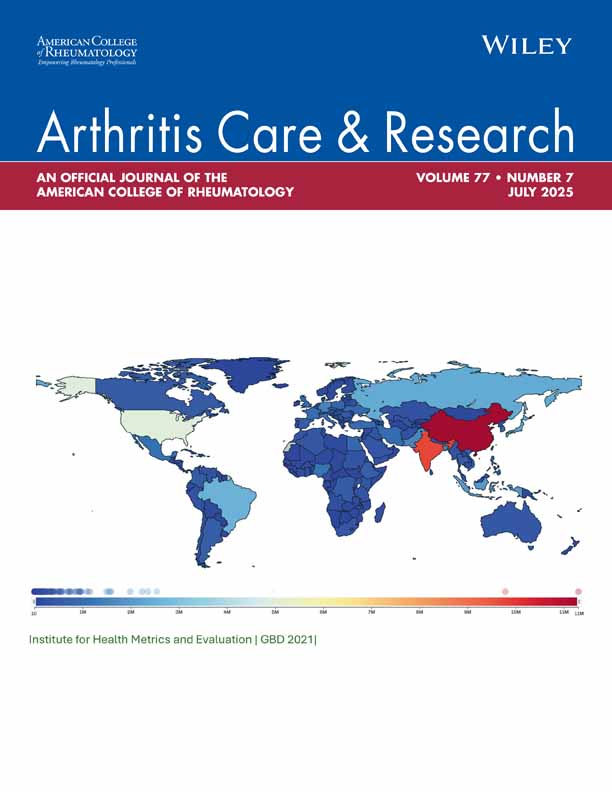Illness intrusion and psychological adjustment to rheumatic diseases: A social identity framework
Abstract
Objective
To examine the extent to which arthritis intruded upon 4 social roles (spouse, homemaker, parent, worker). In accordance with propositions set forth by social identity theory and the identity-relevant stress hypothesis, we hypothesized that 1) illness intrusion would predict psychological well-being and 2) role importance would moderate the relationship between illness intrusion and psychological adjustment, such that intrusion into highly valued roles would be the most psychologically distressing.
Methods
Participants were recruited from the practices of rheumatologists affiliated with a major urban hospital. A total of 113 individuals (73% women) with diagnosed rheumatic disease completed a mailed questionnaire.
Results
For all 4 roles, illness intrusion was related to decreased psychological well-being. In the worker and parent roles, the effects of illness intrusion on adjustment were moderated by whether respondents valued these particular roles. For example, psychological well-being was lowest among those individuals whose illness intruded greatly upon work and who highly valued their worker role identity.
Conclusion
The findings highlight the advantages of assessing both domain-specific illness intrusion and role importance in predicting psychological well-being among persons with rheumatic diseases. Importantly, results also demonstrate the utility of applying a social identity framework in understanding adjustment processes among persons with chronic illness.




